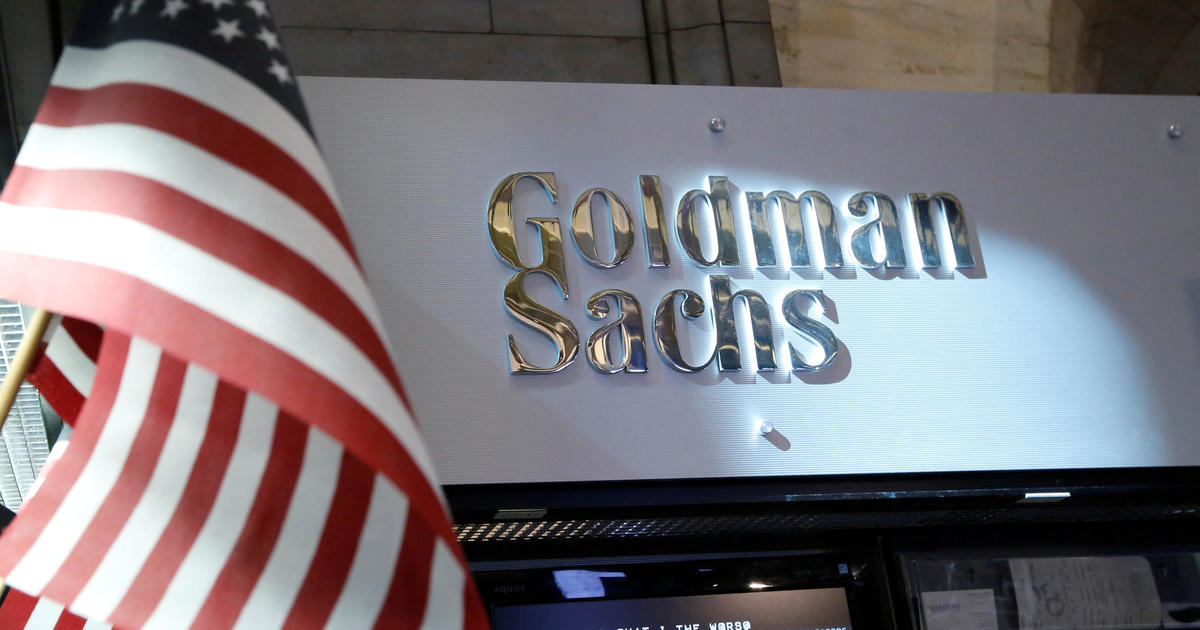Goldman Sachs is adopting a controversial compensation scheme that will help partners at the investment bank lower their annual tax bill by hundreds of thousands of dollars each. But embracing that tax loophole, called carried interest, also could deprive the U.S. government of millions of dollars in revenue.
“This is yet another example of Wall Street executives exploiting loopholes in our tax code to pad their pockets rather than investing in workers and Main Street,” Senator Sherrod Brown, a Democrat from Ohio, said in a statement to CBS MoneyWatch. “Corporate greed is fundamental to the Wall Street business model — and workers aren’t going to get their fair share until we change it. It’s past time for Congress to put workers first by ensuring they share in the profits they create for their employers.”
According to the Wall Street Journal, the boost in Goldman bankers’ pay comes after senior employees at the firm voiced frustration with their compensation in a meeting with top executives earlier this year. Goldman Sachs partners traditionally are guaranteed annual earnings of at least $1 million, and often make much more than that through bonuses and other financial rewards.
A Goldman Sachs spokesperson declined to comment for this story.
What is carried interest?
Carried interest is the cut of a investment fund’s profits that is claimed by firms as payment for deciding where to invest their client’s money. Clients pay that fee — typically 20% — from their investment gains. Private equity firms and hedge funds have long allocated a portion of that fee directly to employees. Goldman, though, would be the first major Wall Street bank to embrace paying employees across the firm with carried interest.
For employees, the main benefit is that carried interest is taxed as capital gains, which has a top tax rate of 20% — far lower than the 37% top tax rate for ordinary income. Cash bonuses and stock options, which have long dominated Wall Street pay, also are taxed as regular income.
Investment firms say that the personal tax savings that come with carried interest gives fund managers a strong incentive to maximize profits, which benefits the clients who are their investors, and stay with the firm that employs them over the long term.
A person familiar with Goldman’s decision called the planned carried interest payouts an “additional benefit,” noting that partners would continue to pay taxes on their regular compensation as normal. Carried interest is a form of deferred compensation — meaning it could be, say, five or six years before Goldman partners would be able to cash in on the new benefit, the person said.
“Tax dodging” as a job perk
By contrast, critics deride carried interest as a costly giveaway to already highly compensated financial professionals.
“If you’re looking for symbols that best represent how our tax laws are rigged to benefit the wealthy and powerful, tax dodging as a Wall Street job perk ranks just behind the billionaire president’s token $750 tax payments,” Senator Ron Wyden, a Democrat from Oregon, said in a statement to CBS MoneyWatch, referring to a report from the New York Times that President Donald Trump paid less than $1,000 in taxes in 2016 and again in 2017.
Another prominent critic of carried interest: President Donald Trump. When he ran for office, he criticized carried interest compensation and promised to close the tax loophole.
“The hedge fund guys are getting away with murder,” Mr. Trump told CBS’ Face the Nation in 2015.
Some states have closed the carried interest tax loophole. But not the U.S. government: The arrangement still gets preferential treatment on federal income taxes, as well as in New York state, where many private equity firms and hedge funds operate.
“I have been advising the companies to be more creative, and this is a nice idea” said Alan Johnson, a top Wall Street compensation consultant, in reference to Goldman’s plan to embrace carried interest. “From a business and shareholder standpoint it makes a lot of sense. Negative publicity is the one downside.”
